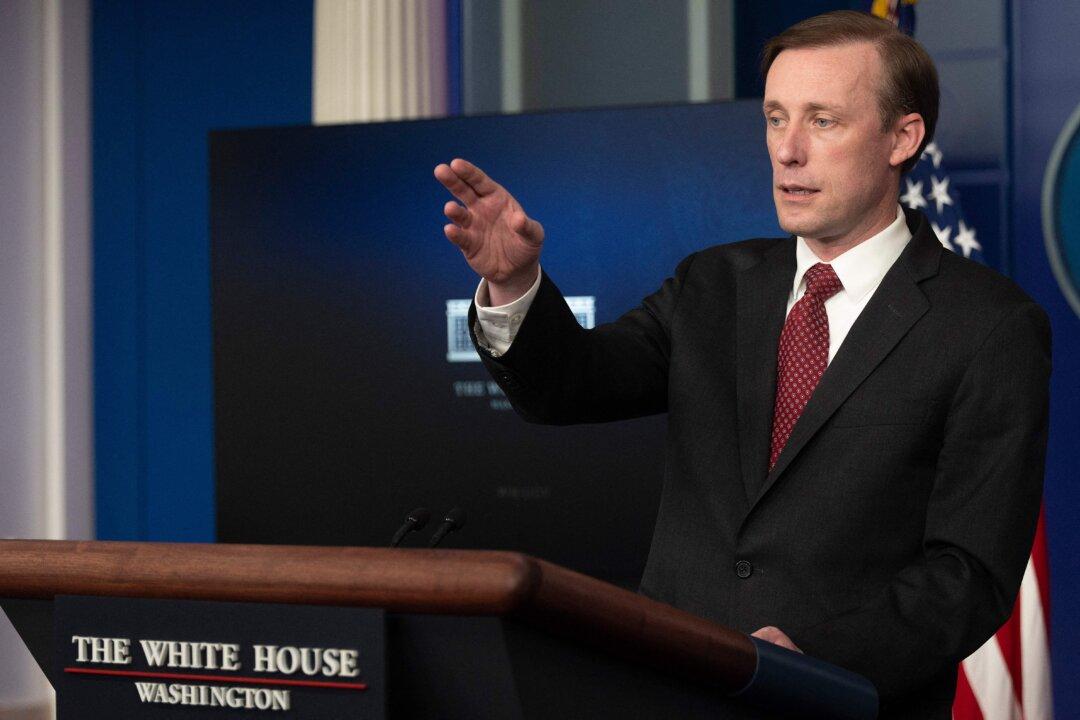China would “end up owning” some of the costs if the regime is seen as supporting a Russian invasion of Ukraine, White House national security adviser Jake Sullivan warned on Feb. 6.
“We believe that Beijing will end up owning some of the costs of a Russian invasion of Ukraine and that they should calculate that as they consider their engagements with the Russian government over the next couple of weeks,” Sullivan told NBC’s “Meet the Press.”





